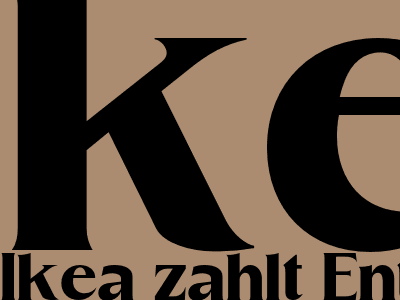
Ikea pays compensation for workers forced to work in East Germany
Swedish furniture giant Ikea has agreed to pay compensation to thousands of former forced labourers in East Germany.
The company acknowledged that it benefited from the exploitation of prisoners of war and political prisoners in communist East Germany during the Cold War.
Ikea said it would set up a 100 million euro (US$106 million) fund to support the former labourers.
The compensation will be paid to individuals who were forced to work in Ikea factories in East Germany between 1945 and 1989.
The company said it had identified about 5,000 former labourers who were entitled to compensation.
The compensation will be paid out in monthly installments of 2,000 euros (US$2,120) for the rest of their lives.
Ikea said it was "deeply sorry" for the suffering caused to the former labourers.
"We hope that this compensation will help them to overcome the trauma they have experienced," the company said in a statement.
The compensation deal was reached after years of negotiations between Ikea and the German government.
The German government had been pressing Ikea to compensate the former labourers for decades.
In 2019, the German government threatened to take legal action against Ikea if it did not agree to pay compensation.
The compensation deal is a significant victory for the former labourers.
It is also a reminder of the dark history of forced labour in East Germany.
The East German government used forced labour to build the Berlin Wall and other major infrastructure projects.
Prisoners of war and political prisoners were also forced to work in factories and other industries.
The East German government collapsed in 1989, and the country was reunited with West Germany in 1990.
Since then, the German government has been working to compensate the victims of forced labour in East Germany.